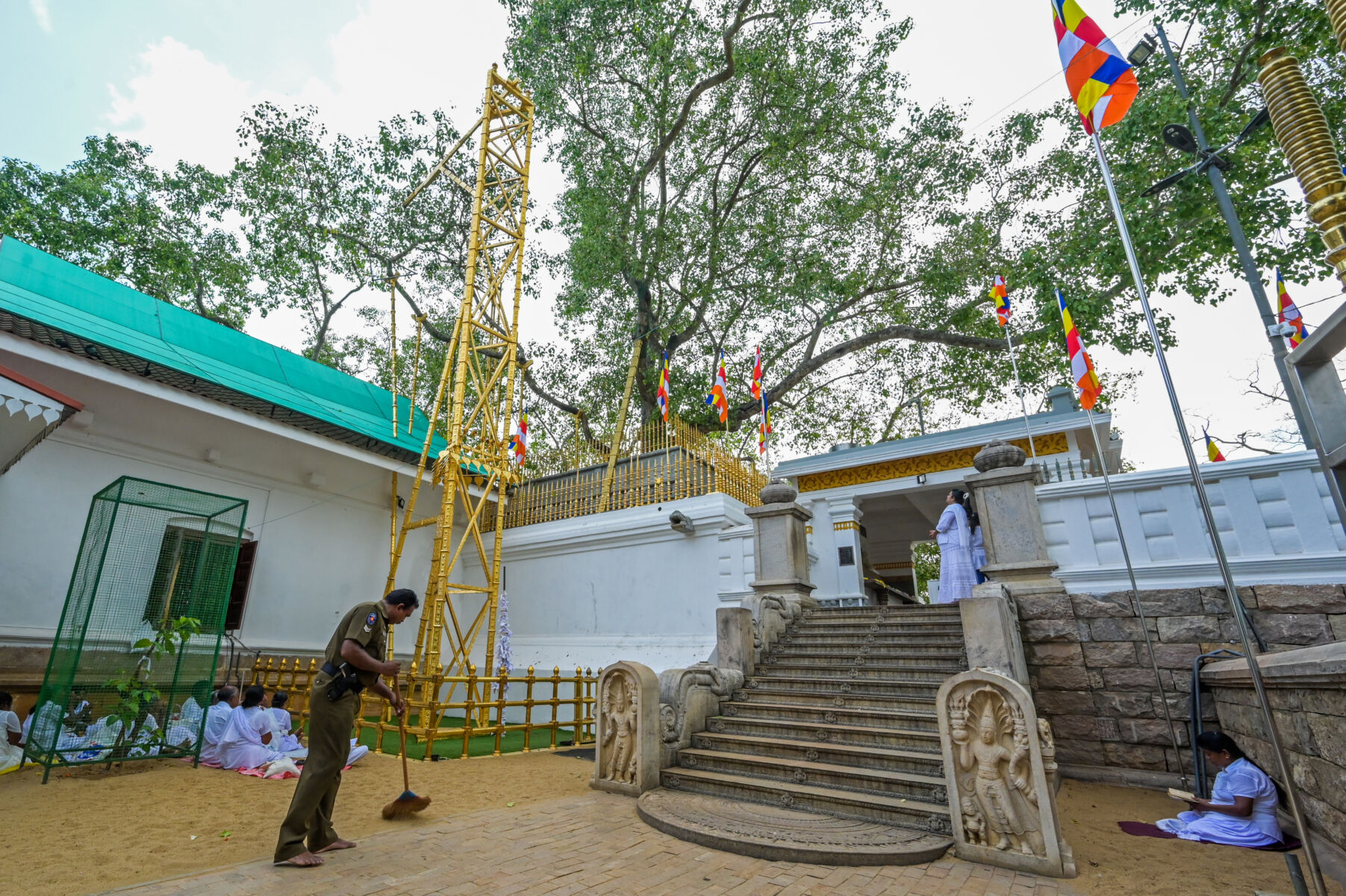Sri Lanka dispels 5G threat to sacred tree after fake news frenzy

In Sri Lanka, the government’s concern for the country’s holiest tree, the 2,300-year-old Sri Maha Bodhi, resulted in a swift response to rumours that 5G mobile signals were causing harm. The tree, grown from a cutting of the Indian bodhi tree that sheltered Buddha when he achieved enlightenment, is a symbol of national sovereignty and an object of worship. The claims that 5G radiation was damaging the tree and putting it at risk of dying prompted President Ranil Wickremesinghe to send a team of experts to investigate. After carrying out surveys and examining the tree, they concluded that there were no 5G signals in the area.
The chief monk of the Bomaluwa Temple that houses the tree in Anuradhapura, 200 kilometres north of Colombo, was accused of taking bribes from phone operators to let them set up 5G base stations nearby. “I am not a scientist, nor a botanist, so I raised the issue with the president in February,” monk Pallegama Hemarathana, 68, told AFP news agency. “He immediately appointed a panel of experts.”
Telecommunications Regulatory Commission Director General Helasiri Ranatunga told AFP there was “no 5G coverage in the sacred area as rumoured”. Radiation in the area was well below World Health Organization thresholds, and botanical experts had ruled there was no threat from existing 2G, 3G or 4G coverage. The panel did, however, recommend banning mobile phone use to preserve the temple’s tranquillity.
The Sri Maha Bodhi tree, botanically a “ficus religiosa” or “bo”, is worshipped by thousands of Buddhists daily as a symbol of the “living Buddha”. The tree is comparatively small despite its long history and is supported by 10 gold-plated iron supports. It is dwarfed by another bodhi tree a short distance away.
The original tree in India is said to have died centuries ago. Its Sri Lankan descendant was the scene of an attack in March 1985 by separatist Tamil Tiger rebels, who killed more than 120 people. Since then, the tree has been provided with airport-style security, with visitors going through metal detectors and pat-downs. It is surrounded by two gold-plated fences and protected round the clock by monks, police and armed troops. Several men are also deployed to clap their hands and chase away squirrels, birds and monkeys that could threaten the tree.
Latest Thailand News
Follow The Thaiger on Google News:
























